10 Proven Ways to Boost Your Car’s Fuel Efficiency
Owning a car is essential for many of us, but it can become a significant drain on our finances. With fuel prices constantly on the rise, it’s no wonder that many people are looking for ways to boost their car’s fuel efficiency. The good news is that there are several simple steps you can take to make your car more fuel-efficient and save money. By making some minor changes to your driving habits and performing regular maintenance on your vehicle, you could see a significant improvement in your car’s fuel efficiency. In this post, we have compiled a list of ten proven ways to boost your car’s fuel efficiency, so you can start saving money on gas today!
1. Introduction: The importance of fuel efficiency and its benefits
Introduction: The Importance of Fuel Efficiency and Its Benefits
With rising fuel costs and growing environmental concerns, improving your car’s fuel efficiency has become more important than ever before. Not only does it save you money at the pump, but it also helps reduce your carbon footprint and contributes to a greener and more sustainable future.
Fuel efficiency refers to the ability of a vehicle to maximize the distance traveled per unit of fuel consumed. By implementing simple yet effective strategies, you can significantly enhance your car’s fuel efficiency and enjoy a range of benefits.
First and foremost, improving fuel efficiency directly translates to saving money. With the average fuel prices constantly fluctuating, being able to go further on each gallon can lead to substantial savings over time. Whether you’re commuting to work, running errands, or embarking on a road trip, reducing fuel consumption can have a positive impact on your monthly budget.
Aside from financial benefits, enhancing fuel efficiency also contributes to a cleaner environment. As cars burn fuel, they release harmful emissions into the atmosphere, including carbon dioxide (CO2) and other pollutants. By consuming less fuel, your vehicle emits fewer pollutants, thus reducing your carbon footprint and helping to combat climate change.
Furthermore, improved fuel efficiency can enhance your driving experience. When your car is running more efficiently, it tends to have better acceleration, responsiveness, and overall performance. This leads to a smoother and more enjoyable ride, making your daily commute or long drives more pleasurable.
In this blog post, we will explore ten proven ways to boost your car’s fuel efficiency. These strategies range from simple maintenance tips and driving habits to advanced technologies and modifications. By implementing these techniques, you can optimize your vehicle’s fuel consumption, save money, and contribute to a cleaner and greener future. So let’s dive in and discover how you can make your car go the extra mile while using less fuel.
2. Drive smoothly and avoid aggressive acceleration
One of the most effective ways to boost your car’s fuel efficiency is to drive smoothly and avoid aggressive acceleration. Many drivers underestimate the impact of their driving style on fuel consumption, but it can actually make a significant difference.
When you accelerate aggressively, you force your car’s engine to work harder, burning more fuel in the process. Rapid acceleration not only wastes fuel but also puts unnecessary strain on your engine and other components of your vehicle.
On the other hand, driving smoothly and gradually accelerating can help you achieve better fuel efficiency. By gently pressing on the accelerator pedal and allowing your car to build up speed gradually, you give the engine time to adjust and operate more efficiently.
Additionally, avoiding sudden braking and maintaining a consistent speed can also contribute to fuel savings. When you brake abruptly, you waste the kinetic energy that your car has gained, and then you need to accelerate again, consuming more fuel in the process. By planning your stops ahead and coasting to a gradual stop, you can reduce fuel consumption and improve overall efficiency.
Practicing smooth driving techniques not only helps you save money on fuel but also promotes a safer and more comfortable driving experience. By being mindful of your acceleration and braking habits, you can increase your car’s fuel efficiency and make a positive impact on both your wallet and the environment.
3. Keep your tires properly inflated
One of the most effective and often overlooked ways to boost your car’s fuel efficiency is by keeping your tires properly inflated. Many drivers underestimate the impact that tire pressure can have on their vehicle’s fuel consumption.
When your tires are underinflated, more surface area of the tire comes in contact with the road, resulting in increased rolling resistance. This means that your engine has to work harder to move the car forward, ultimately leading to higher fuel consumption.
On the other hand, overinflated tires can also be detrimental to fuel efficiency. Overinflation reduces the contact area between the tires and the road, causing uneven wear and reduced traction. This can lead to an unsafe driving experience and even increase the risk of accidents.
To ensure optimal fuel efficiency, it’s crucial to check your tire pressure regularly. Refer to your car’s user manual or the sticker on the driver’s side door jamb for the recommended tire pressure values. Invest in a reliable tire pressure gauge to accurately measure the pressure levels.
If you find that your tires are underinflated, use an air compressor to fill them up to the recommended pressure. Many gas stations and auto repair shops offer air filling stations. It’s important to note that tire pressure should be checked when the tires are cold, as driving heats up the tires and can lead to inaccurate readings.
By keeping your tires properly inflated, you can reduce rolling resistance, improve fuel efficiency, and ultimately save money on gas. It’s a simple and cost-effective way to make a significant impact on your car’s overall performance. Don’t underestimate the power of properly inflated tires in boosting your car’s fuel efficiency.
4. Remove unnecessary weight from your car
Removing unnecessary weight from your car is a simple yet effective way to boost your fuel efficiency. Many of us tend to accumulate items in our vehicles over time, whether it’s sports equipment, tools, or even just random items from our daily lives. However, carrying around this extra weight can have a significant impact on your car’s fuel consumption.
Take a moment to assess the items in your car and consider what you truly need on a daily basis. Are you lugging around a set of golf clubs that only see the light of day once a month? Or perhaps you have a collection of old magazines and books sitting in the backseat. By removing these unnecessary items, you can lighten the load and improve your car’s fuel efficiency.
Additionally, it’s worth mentioning that roof racks and cargo carriers can also contribute to increased drag on your vehicle, resulting in reduced fuel efficiency. If you’re not actively using these accessories, consider removing them to streamline your car’s aerodynamics.
Remember, every extra pound of weight adds to the work your engine has to do, and subsequently, the amount of fuel it consumes. By decluttering your car and removing unnecessary weight, you’ll not only improve your fuel efficiency but also enjoy a smoother and more economical driving experience. So, take the time to clean out your car and reap the benefits of a lighter, more efficient vehicle.
5. Use the correct motor oil
Using the correct motor oil for your car is essential when it comes to boosting fuel efficiency. Many car owners overlook this simple yet crucial factor, but it can have a significant impact on your vehicle’s performance and fuel consumption.
Firstly, it’s important to understand that not all motor oils are created equal. Different types of motor oil have different viscosity levels, which determine how easily it flows through the engine. Using the wrong viscosity can lead to increased friction and resistance within the engine, resulting in decreased fuel efficiency.
To determine the correct motor oil for your car, refer to the owner’s manual or consult with a trusted mechanic. They will be able to recommend the appropriate viscosity and oil specifications that are best suited for your vehicle.
Additionally, opting for high-quality synthetic oils can also contribute to improved fuel economy. Synthetic oils are specially formulated to provide better lubrication and reduce friction, which translates to smoother engine performance and reduced energy waste.
Regularly changing your motor oil according to the recommended schedule is also crucial. Over time, motor oil can become contaminated with dirt, debris, and other impurities, which can hinder its effectiveness in lubricating the engine. This can lead to increased fuel consumption as the engine works harder to compensate for the lack of proper lubrication.
By using the correct motor oil and adhering to regular oil changes, you can maximize your car’s fuel efficiency and ensure optimal engine performance. This simple yet often overlooked aspect can result in long-term savings on fuel costs and a greener, more efficient driving experience.
6. Avoid idling for extended periods
One simple yet effective way to boost your car’s fuel efficiency is to avoid idling for extended periods. We’ve all been guilty of sitting in our cars with the engine running, whether it’s waiting for someone, stuck in traffic, or just taking a moment to check our phones. However, idling for more than a minute can significantly reduce your fuel efficiency.
When your car is idling, it’s still consuming fuel without actually moving. This not only wastes precious fuel but also contributes to unnecessary emissions, harming the environment. By avoiding idling for extended periods, you can save fuel and reduce your carbon footprint.
If you anticipate waiting for more than a minute, it’s better to turn off your engine. Modern cars are designed to start quickly and efficiently, so the fuel saved from avoiding idling will outweigh the minimal fuel consumed during the start-up process.
Additionally, if you find yourself in a situation where you’re stuck in traffic or at a long stoplight, consider shifting your car into neutral or park. This will reduce the strain on your engine and further conserve fuel.
By making a conscious effort to avoid idling for extended periods, you’ll not only save money on fuel costs but also contribute to a greener and more sustainable environment. So the next time you find yourself in a situation where your car doesn’t need to be running, remember to turn off the engine and reap the benefits of improved fuel efficiency.
7. Plan your routes and combine trips
Planning your routes and combining trips is a simple yet effective way to boost your car’s fuel efficiency. Often, we find ourselves running multiple errands throughout the day, driving back and forth between different locations, wasting both time and fuel.
By taking a few minutes to plan your routes in advance, you can optimize your driving and minimize unnecessary mileage. Consider grouping together errands that are in close proximity to each other, creating a logical sequence that allows you to complete them efficiently. This way, you can avoid backtracking and reduce the overall distance traveled.
Additionally, combining trips whenever possible can make a significant difference in fuel consumption. Instead of making separate trips for each task, try to plan your outings so that you can accomplish multiple tasks in a single trip. For instance, if you need to drop off your kids at school and pick up groceries, plan your schedule to cover both activities in one go.
By consolidating your trips and planning efficient routes, you can reduce the overall time spent on the road and cut down on fuel consumption. This not only saves you money but also contributes to a greener environment by reducing carbon emissions.
Take advantage of technology to aid you in route planning. Utilize navigation apps or online mapping services that offer real-time traffic updates and suggest the most optimal routes. These tools can help you avoid congested areas, road closures, or construction zones, further enhancing your fuel efficiency.
Remember, every mile saved adds up, and small changes in your driving habits can lead to significant fuel savings over time. So, take a proactive approach and plan your routes wisely to maximize your car’s fuel efficiency. Your wallet and the planet will thank you!
8. Maintain regular vehicle maintenance
Maintaining regular vehicle maintenance is essential for optimizing fuel efficiency and ensuring your car runs smoothly. Neglecting maintenance tasks can lead to decreased fuel economy and potential breakdowns, resulting in costly repairs and wasted fuel.
One crucial aspect of vehicle maintenance is keeping your engine properly tuned. A well-tuned engine not only improves performance but also maximizes fuel efficiency. Regularly check and replace spark plugs, air filters, and fuel filters as recommended by your car’s manufacturer.
Another important maintenance task is maintaining proper tire pressure. Underinflated tires create more rolling resistance, which can significantly reduce fuel efficiency. Check your tire pressure regularly and inflate them to the recommended levels specified in your car’s manual.
Equally important is regular oil changes. Clean engine oil lubricates the engine parts effectively, reducing friction and allowing for smoother operation. This, in turn, can contribute to better fuel efficiency. Follow the recommended oil change intervals provided by the manufacturer.
Additionally, ensure that your car’s cooling system is in good condition. Overheating can cause excessive fuel consumption. Check coolant levels, inspect hoses and belts, and flush the system as necessary.
Furthermore, don’t neglect the importance of regular maintenance for the vehicle’s transmission and brakes. A well-functioning transmission promotes efficient power delivery, while properly maintained brakes prevent unnecessary drag and fuel wastage.
Lastly, pay attention to any warning lights or unusual noises coming from your vehicle. These can be indicators of underlying issues that, if left unaddressed, can negatively impact fuel efficiency. Promptly address any problems by consulting a qualified mechanic.
By prioritizing regular vehicle maintenance, you not only extend the lifespan and reliability of your car but also optimize its fuel efficiency, saving you money in the long run and reducing your environmental impact.
9. Use cruise control on the highway
Using cruise control on the highway is a simple yet effective way to boost your car’s fuel efficiency. By maintaining a consistent speed, cruise control helps to eliminate unnecessary accelerations and decelerations that can waste fuel.
When driving without cruise control, it’s natural to experience slight variations in speed due to human error or traffic conditions. These fluctuations can lead to increased fuel consumption as your car constantly adjusts its speed. However, by engaging cruise control, your vehicle will maintain a steady pace, optimizing fuel usage.
Additionally, cruise control helps to reduce the temptation to exceed speed limits. By staying within the recommended speed range, you can further improve your car’s fuel efficiency. This is particularly beneficial on long road trips where maintaining a consistent speed becomes even more important.
However, it’s important to note that cruise control is most effective on flat or gently rolling terrain. If you encounter steep inclines or winding roads, it’s best to disengage cruise control to allow your car to adjust appropriately and maintain optimal fuel efficiency.
Implementing cruise control as a regular practice during highway driving not only helps to save fuel but also promotes a smoother and more relaxed driving experience. By reducing unnecessary speed variations and maintaining a steady pace, you can enjoy improved fuel efficiency and potentially save money at the gas pump.
10. Consider alternative transportation options when possible
When it comes to boosting your car’s fuel efficiency, considering alternative transportation options can have a significant impact. While we all rely on our cars for daily commuting and transportation needs, there are times when it’s worth exploring other options.
Public transportation is a great alternative that not only helps reduce fuel consumption but also contributes to reducing traffic congestion and air pollution. Many cities offer extensive public transportation networks, including buses, trains, and subways. By utilizing these services, you can save money on fuel costs and reduce your carbon footprint.
Carpooling or ridesharing is another effective way to minimize fuel usage. By sharing a ride with colleagues, neighbors, or friends who are heading in the same direction, you can split the fuel costs and reduce the number of vehicles on the road. This not only saves you money but also reduces traffic congestion and promotes a more sustainable way of commuting.
If your destination is within a reasonable distance, consider walking or cycling instead of driving. Not only will you save on fuel costs, but you’ll also enjoy the health benefits of physical activity. Walking or cycling short distances is not only environmentally friendly but also a great way to incorporate exercise into your daily routine.
For longer journeys, consider taking a train or a flight instead of driving. Trains are generally more fuel-efficient than cars, and flights can be a viable option for longer distances. While flying may not always be practical or affordable, it’s worth considering for certain trips where the time saved and convenience outweigh the fuel consumption.
Ultimately, considering alternative transportation options when possible can significantly reduce your car’s fuel consumption, save you money, and contribute to a more sustainable lifestyle. So, the next time you’re planning a trip, think about the alternatives available and choose the option that aligns with your goals of boosting fuel efficiency.
11. Conclusion: The cumulative impact of fuel-efficient habits
In conclusion, adopting fuel-efficient habits for your car can have a significant cumulative impact on your overall fuel efficiency. By implementing the tips and strategies discussed throughout this blog post, you can not only save money on fuel costs but also reduce your carbon footprint and contribute to a cleaner environment.
Remember, small changes can make a big difference. Simple habits like maintaining proper tire inflation, avoiding aggressive driving, and reducing excessive idling can go a long way in maximizing your car’s fuel efficiency. Additionally, regular vehicle maintenance, such as tuning up the engine, changing air filters, and using the recommended grade of motor oil, can further optimize fuel consumption.
Another key aspect to consider is the weight of your vehicle. Removing unnecessary items and excess baggage can help reduce the load on your car and improve fuel efficiency. Furthermore, planning and combining trips whenever possible can minimize mileage and conserve fuel.
It is important to note that fuel-efficient habits are not just beneficial for your wallet and the environment; they can also contribute to a smoother and more enjoyable driving experience. By adopting these practices as part of your daily routine, you can enhance your car’s performance while reducing your dependence on fossil fuels.
In conclusion, fuel-efficient habits are a win-win situation. They not only help you save money and reduce emissions but also promote sustainability and responsible driving. So, why not start implementing these proven ways to boost your car’s fuel efficiency today? Your wallet, the environment, and future generations will thank you.
We hope you found our blog post on boosting your car’s fuel efficiency helpful. With rising fuel costs and a growing concern for the environment, it’s more important than ever to find ways to make our vehicles more fuel-efficient. By implementing the 10 proven tips we discussed, you’ll not only save money on gas but also contribute to a greener planet. So, start applying these tips today and enjoy the benefits of a more efficient and eco-friendly ride. Safe travels!


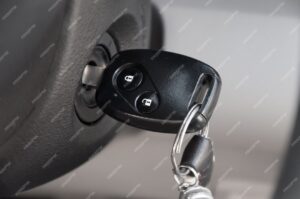
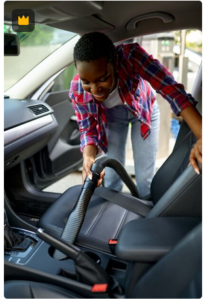

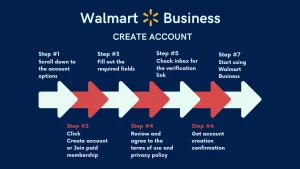
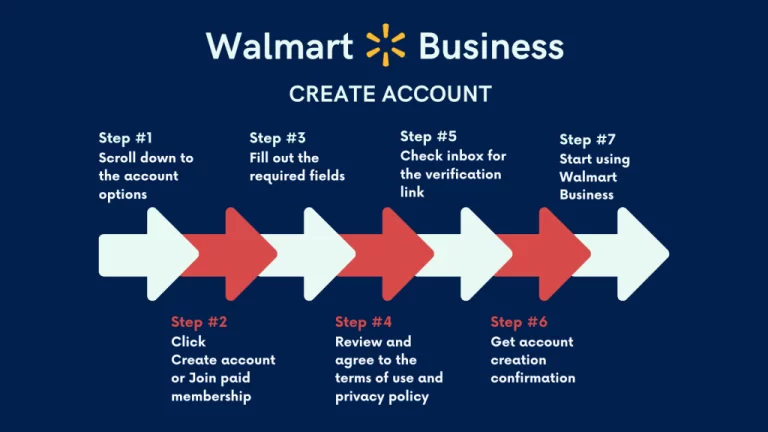
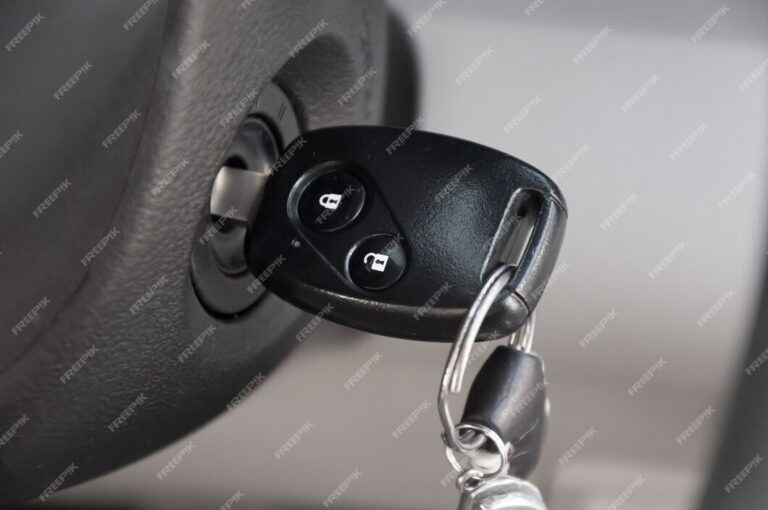
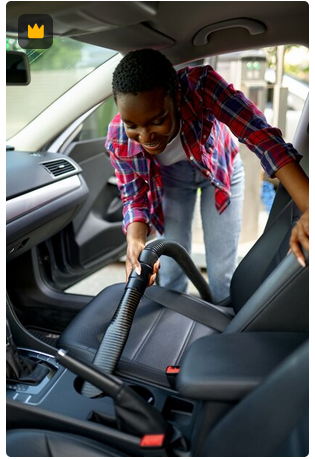
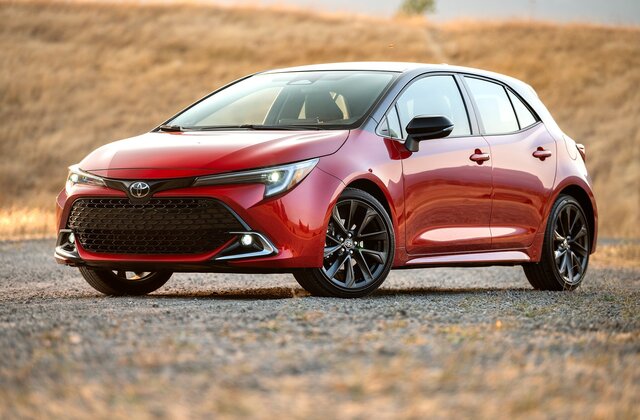


+ There are no comments
Add yours